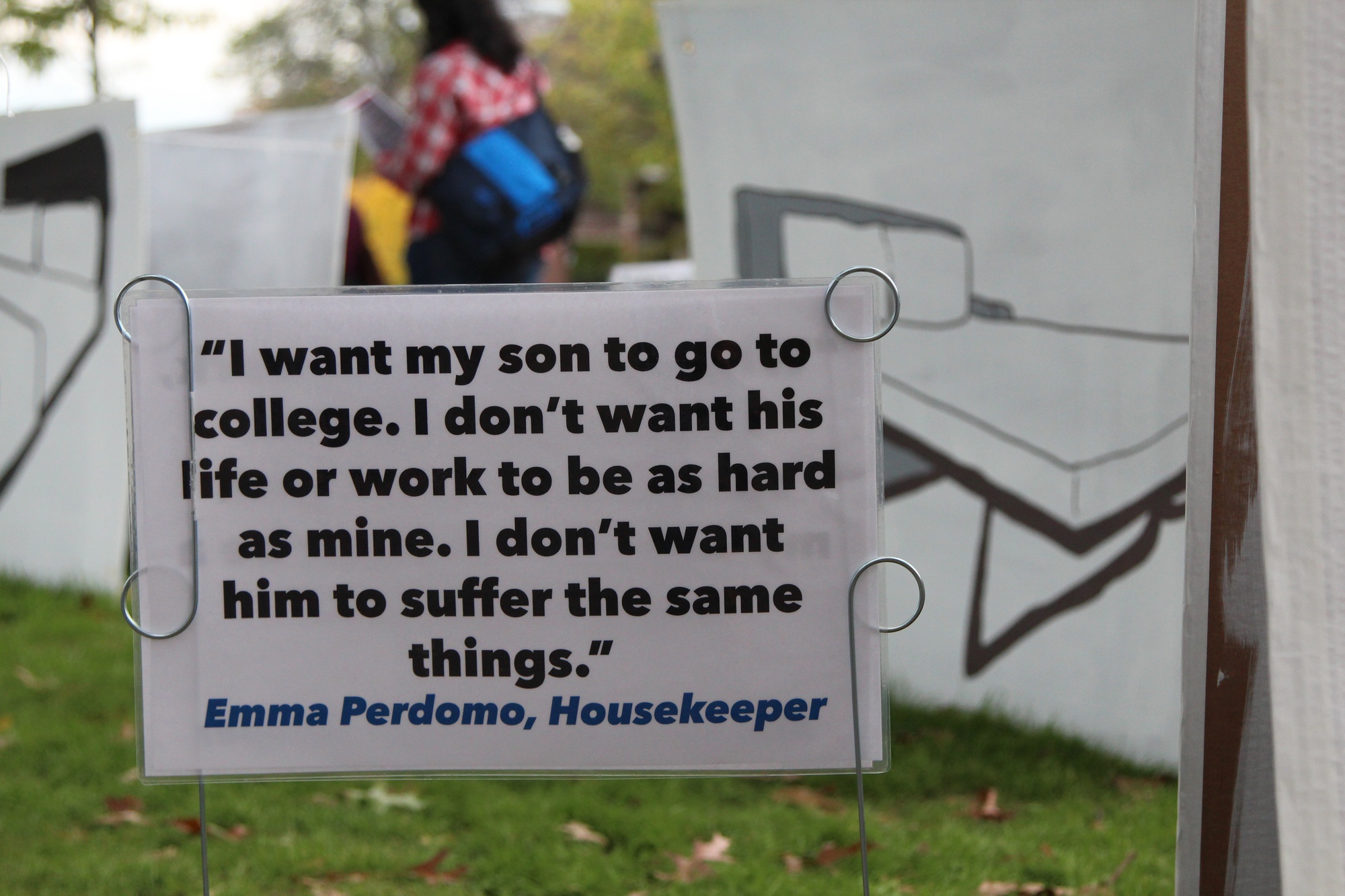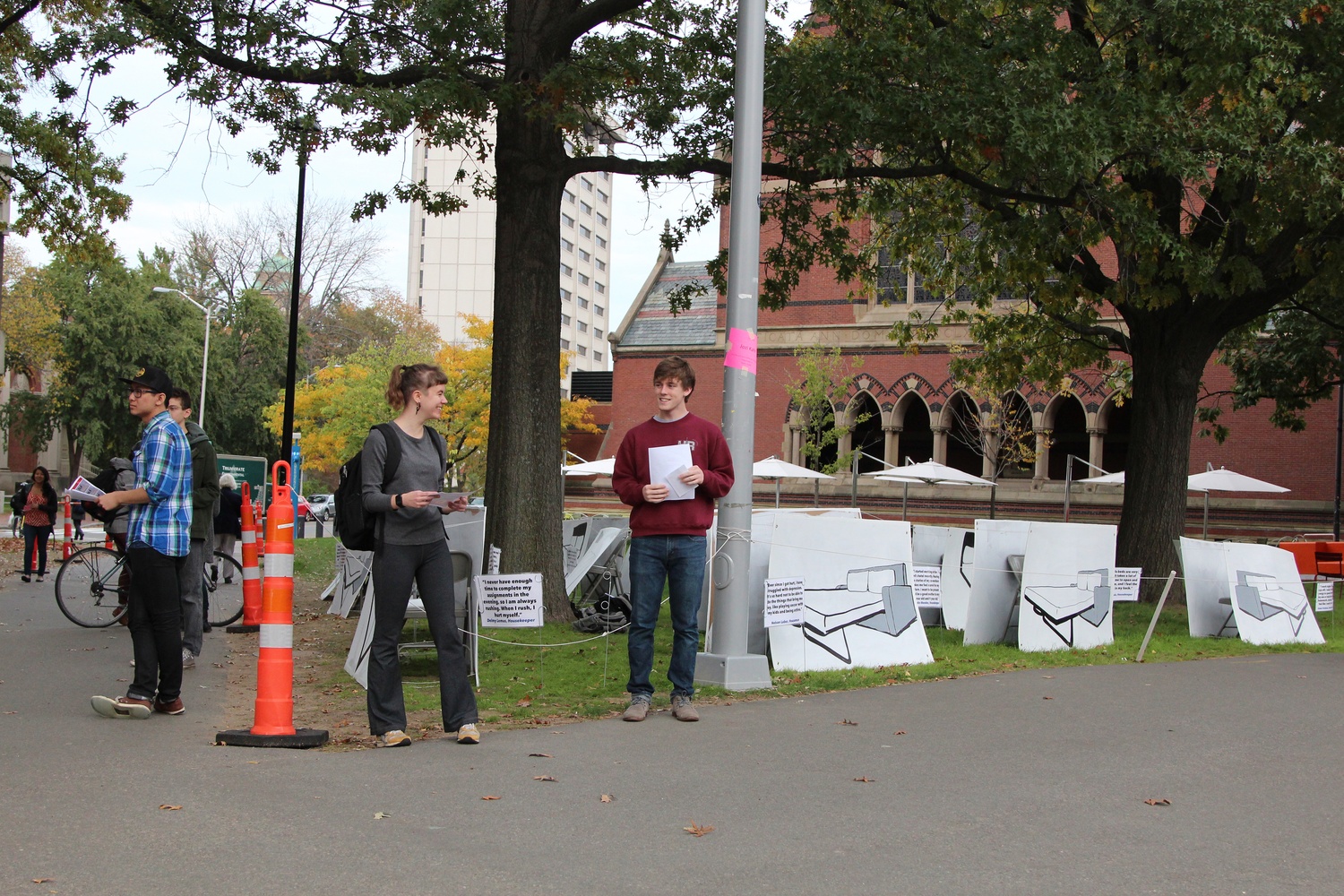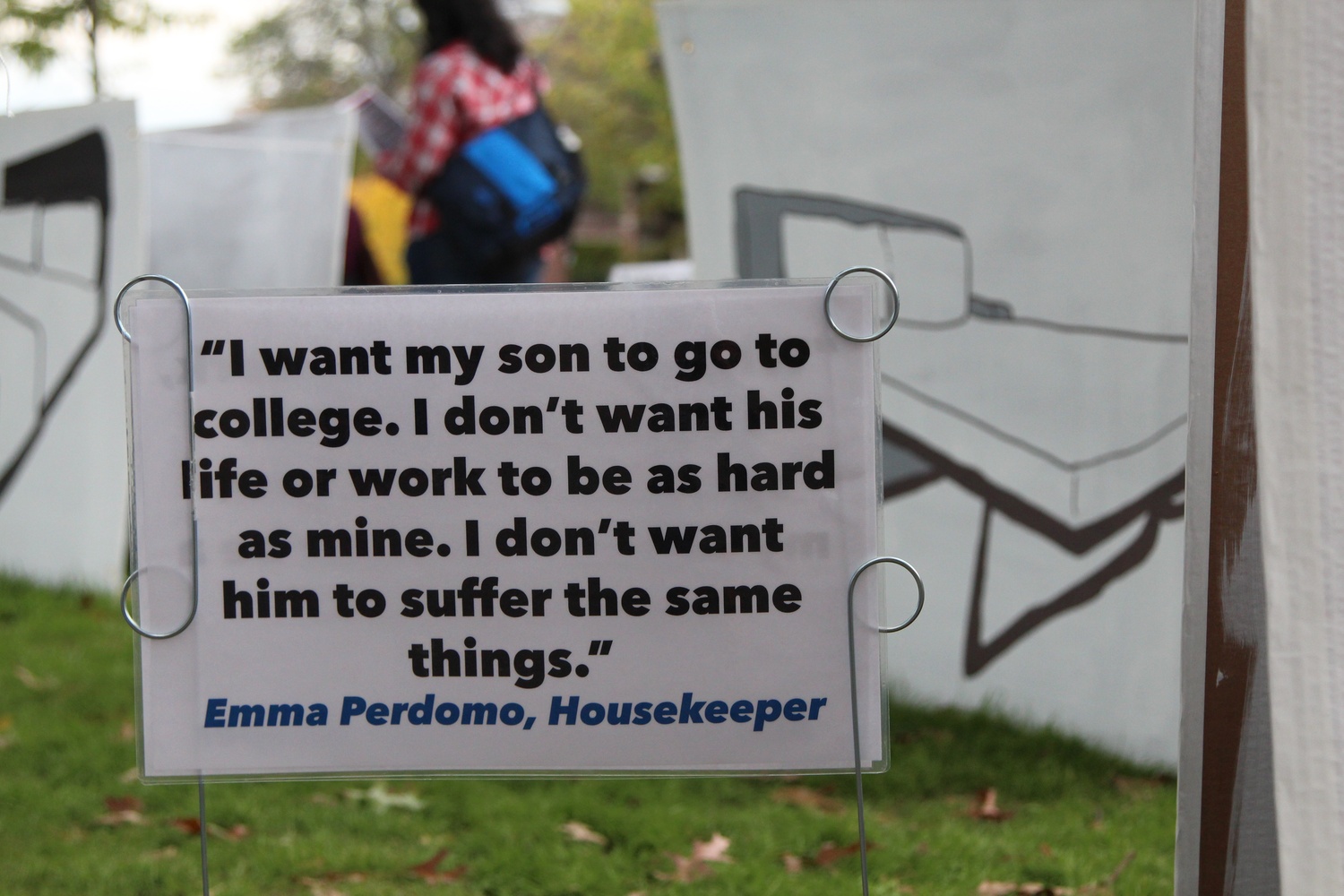
News
Summers Will Not Finish Semester of Teaching as Harvard Investigates Epstein Ties

News
Harvard College Students Report Favoring Divestment from Israel in HUA Survey

News
‘He Should Resign’: Harvard Undergrads Take Hard Line Against Summers Over Epstein Scandal

News
Harvard To Launch New Investigation Into Epstein’s Ties to Summers, Other University Affiliates

News
Harvard Students To Vote on Divestment From Israel in Inaugural HUA Election Survey
Citing Workplace Injuries, DoubleTree Workers Call for Faust Meeting

UPDATED: October 29, 2014, at 10:40 p.m.
Students, workers, and local politicians convened for a roundtable discussion Tuesday evening to discuss workplace hazards at the Boston-Cambridge DoubleTree Suites and call on University President Drew G. Faust to help the hotel’s employees in their efforts to unionize.
The roundtable was the latest step of a campaign organized by the Student Labor Action Movement and UNITE HERE! Local 26, a Massachusetts-based union that represents Harvard’s dining hall employees. The campaign has featured numerous protests and rallies, initiated after a majority of workers at the hotel signed a petition in March 2013 to launch the process of deciding whether to join Local 26.

The workers said they hope that Hilton, the parent company of DoubleTree, will be more receptive to their preferred means of unionization if Harvard pressures the company. The hotel is not operated by the University but is located in a Harvard-owned building.
Approximately 50 attendees gathered in the Phillips Brooks House to listen to several DoubleTree workers describe their working conditions. Union representatives, two Boston city councilors, and Boston City Councilor at Large Michelle Wu also joined the conversation.
“When I hear [about DoubleTree working conditions], I am absolutely furious,” Cambridge City Councillor E. Denise Simmons said to applause from the audience. “The University has enough money to run several small companies, or several small countries, and for them to allow mistreatment to happen and pretend they have clean hands is outrageous.”
One former housekeeper, Vilma Ayala, said that DoubleTree managers overworked her to the point of injury while she was pregnant, offering her no sympathy or reduced work during her pregnancy. With her arm around her four-year-old daughter Mayli, she asked the Harvard community to support the workers.
“Today, it’s really, really difficult for me to do anything–I can’t go back to work because I’m in so much pain,” Ayala said, her eyes filling with tears. “I can’t even pay rent, I can hardly pay to feed my children.”
The event comes as a part of a shift in SLAM’s tactics this semester, which includes emphasizing employee injuries at the DoubleTree and calling on Faust to meet personally with workers. SLAM and Local 26 representatives said that Bureau of Labor statistics indicate that in 2012, DoubleTree workers had an incidence rate of injury and illness that was 74.5 percent higher than that of other institutions in the leisure and hospitality industry in Massachusetts.
“I really just think that it’s appalling that Harvard profits and makes millions of dollars off the backs of these workers,” said SLAM member Nina R. Wagner ’18. “I think a part of that is that these workers are perceived as invisible, their work is not valued, their work is not regarded as dangerous.”
Earlier in the day, SLAM members demonstrated in Harvard Yard with 28 five-foot long black and white images of beds coupled with 28 signs with quotes from DoubleTree housekeepers on experiences of pain and injuries.
“A lot of people still aren’t aware of this issue,” said SLAM member Charity E. Barros ’18, who flyered outside the Science Center and helped spread information about worker treatment on Tuesday afternoon. “They’re pretty shocked by how much Harvard makes off [of owning the hotel property] and how badly the workers are treated there.”
Because Harvard does not directly employ the workers at the DoubleTree, the University continues to maintain that it is not a party to the unionization process, according to Associate Vice President for Public Affairs Kevin Casey.
“Harvard encouraged the parties to undertake a fair election process—secret ballot or card check—but has not expressed a preference as to which ballot process should be followed, so long as the parties agree to a process,” Casey said in a statement.
—Staff writer Mariel A. Klein can be reached at mariel.klein@thecrimson.com. Follow her on Twitter @mariel_klein.
This article has been revised to reflect the following correction:
CORRECTION: October 29, 2014
An earlier version of this article incorrectly stated the municipality for which Michelle Wu is a city councilor. In fact, she is a Boston city councilor at large.
Want to keep up with breaking news? Subscribe to our email newsletter.

